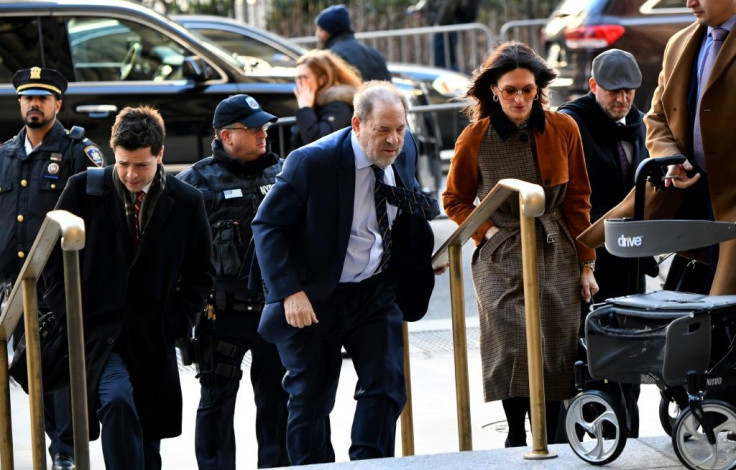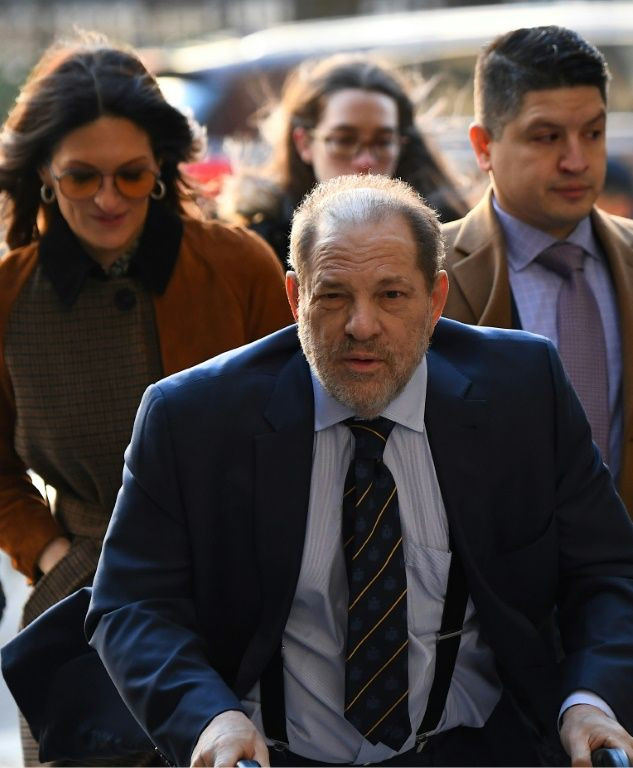Weinstein Prosecutors Urge Jurors To Convict 'Predator'

Harvey Weinstein was a "predator" who used his status as a powerful Hollywood producer to take advantage of the women he attacked, prosecutors said Friday as his sex crimes trial drew to a close.
The disgraced movie mogul, 67, faces life in prison if convicted of predatory sexual assault charges in the high-profile trial that marks a watershed moment in the #MeToo global reckoning against men abusing positions of power.
Weinstein believed he was "the master of his universe, and the witnesses here were really ants who he could step on without consequences," said assistant district attorney Joan Illuzzi-Orbon in the final day of closing arguments.
"He had a surefire insurance policy: the witnesses were standing in line to get into his universe," she added.
Weinstein, the first man accused of abuse in the #MeToo movement to face a criminal trial, has been accused of sexual misconduct by more than 80 women. He denies the allegations against him.
Six women took the stand to say the ex-Miramax Films boss had sexually assaulted them, but the jury is considering charges related to just two: ex-actress Jessica Mann and former production assistant Mimi Haleyi.
Mann says Weinstein raped her in March 2013, while Haleyi alleges he forcibly performed oral sex on her in July 2006.
Illuzzi-Orbon argued that the six women who testified had "no motive to lie."
"They sacrificed their dignity and privacy and peace for the prospect of having that voice" heard, she said.
On Thursday, defense attorney Donna Rotunno argued the women had used sex with Weinstein to advance their careers, saying they only decided they had been assaulted after Weinstein became a global pariah when allegations against him ignited #MeToo in October 2017.

The trial has raised complicated issues surrounding consent and abuse of power for the jury of seven men and five women.
Under cross-examination, both Mann and Haleyi acknowledged at least one consensual sexual encounter with Weinstein after the alleged assaults.
"By going to Harvey Weinstein's home, did she deserve what she got? Was it her decision?" asked Illuzzi-Orbon, referring to Halleyi's accusation that Weinstein assaulted her in his house.
"If you go on a plane, should you expect to be hijacked?" she said in comparison. "But we view the victims of sex crimes so differently than the crimes that are committed against people on a regular basis."
Testimony during the trial from Mann, a former aspiring actress, was often-confused and she recalled having a relationship with Weinstein for several years after he allegedly raped her in 2013.
The defense has presented emails that appear to show Mann on friendly terms with Weinstein.
"The truth leaves a paper trail," said Rotunno in her closing arguments on Thursday.
But Illuzzi-Orbon argued that Mann has shown her moral character, even if she made a "bad decision" in the past.
Weinstein faces five counts, including predatory sexual assault, rape and engaging in a criminal sexual act.
Jurors will begin deliberating Weinstein's fate on Tuesday and must reach unanimous verdicts on each count.
If they are unable, the judge may be forced to declare a mistrial.
A split verdict is possible, where Weinstein is convicted of some charges and cleared of others.
Weinstein faces a separate sex crimes investigation in Los Angeles and is the subject of several civil complaints.
© Copyright AFP 2024. All rights reserved.





















